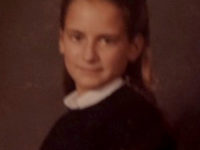#istandwithKeaton; #metoo
Sometime recently, a video of young Keaton Jones went viral. In the video, he is seen crying, asking his mom why and when would they (his bullies) stop. Before the whole thing became controversial, many celebrities came forward in support of Keaton and against any bullying of others, especially children. In other recent news has been the #metoo movement. In this, multiple men and women, both celebrity and civilian, have come forward with their stories of being abused, accosted, or even assaulted by predatory and perhaps mysoginistic men in the spheres of Hollywood and Washington, D.C. I do have a #metoo story in that vein which may need telling some day, but this story is an #istandwithKeaton story of a #metoo sort.
I have always had a tender heart, more readily touched or pierced than others, and, for the most part, this has served me well in my life and career. For the most part. There have been times when my tender heart has been more of a liability than a strength; this was especially true during my middle school years.
When I started the fifth grade at the Webb School of Knoxville, the world I entered was almost entirely new and different from Sequoyah, the small, neighborhood elementary school I attended from kindergarten through fourth grade. Instead of walking to school nearly every day with my younger brother and best friend, I was taking a 30 minute bus ride to what was then way west Knoxville. Webb was both thrilling and intimidating; we all had had to take a test before being accepted, and the school’s rigorous academic reputation long preceded our matriculation. The entire fourth grade at Sequoyah was in two less-than-20-kids-per-classroom sections. I began fifth grade with nearly double that number and certainly felt I knew fewer than half of them. This all meant more and more difficult competition, both academically and socially. I am not sure I consciously realized how much higher the stakes had gotten, but I remember knowing in my gut there was something more intense, maybe even more important, about this new school and phase of life.
Academically, I did well, just as I had in elementary school. Then came the Indian folder, due at the end of October. I completed the project on my own (and on time) as was my usual routine. My art work was earnest, but not pretty, as hand-eye coordination did not come easily to me. I used my best handwriting, but that, too, was not as beautiful or neat as others’ were. I had done my best, as always, and when the folders were returned my grade (an 82) devastated me. I was so ashamed. Always in elementary school, I was grouped with the smart kids, and I behaved and performed accordingly. This project grade, I felt, put me squarely in the lower mid-lands, challenging where I had always believed I belonged. The splintering of my child spirit began.
In addition to this newfound academic stress, and, remember, I was all of 11 years old at the time, was new and different social pressure. Within just a few weeks of the school year’s start, the “popular girls” had established themselves. I desperately wanted to be a part of their group. Our parents were friends, we swam on the Cherokee Country Club swim team together, and I had been a leader at Sequoyah. Wasn’t I supposed to be in their group?? I guess they tolerated me for a while. In the spring, on our class trip to Williamsburg, Virginia, I was allowed to room with some of them. The downward spiral of the next two to three years began on that trip.
On the trip’s first night, we stopped in Monticello. The hotel had an indoor pool, and we were allowed to swim, one of my most favorite things ever. I had taken a dive to the pool’s bottom and was returning to surface when one of the boys, just being a boy, did a cannon-ball directly over me and landed squarely on my face, well, nose, to be exact. I had two black eyes, a headache, and a swollen nose for the rest of the trip. After being tucked in by a teacher and her ER physician husband, I found my “Boodie” (“Blue-blanket,” shortened, when I was a toddler). I was so so glad I had brought it. I had never spent a night without it. I also did not want my roommates to know I still slept with a blanket, so I kept it close, under my pillow. In the busyness of getting ready the next morning, having two black eyes, and a headache, I forgot him/it under that pillow, never to be seen or held again.
Fast forward to sixth grade. I was better established academically and had a small, tight circle of friends with whom I spent many a Friday night. I loved these friends, I did; I see so clearly now how amazing they were, but still, I craved being accepted by the “popular girls.” Towards that goal, I basically subjected myself to their pleasure. The details are almost irrelevant. I was the perfect target in that I did whatever they asked or told me to do, knowing what was coming, and still cried every single time. Their pleasure was painful in a life-defining way. I was well into my forties before I could even begin to see myself as someone actually worthy of love and respect.
That’s the horrible truth around the whole bullying phenomenon. Kids who are bullied tend to react in a way that seems to beg for more. I went home crying nearly every day of the sixth grade. At that time, my mother was unfortunately ill-equipped to handle my mess. She was doing the best she could, and she told me truthfully, “You are bringing this on yourself.” What I understood from that statement was not the truth, but the lie that their mean and hate were my fault. There were so many ways I tried unsuccessfully to end it (and still be accepted by them). I tried laughing “with” them, intentionally not doing well on a test or two so my grades would not be so high; once I even tried fighting back to no avail at all. It did not end until somewhere in the early eighth grade.
As my own girls approached late elementary school, my anxiety around that experience returned, and I bought a copy of Haley DiMarco’s book, Mean Girls. I did not even get through the first chapter. Haley’s straight forward, “never let ‘em see you sweat/cry” approach spoke right into that place where I held myself completely at fault for those years of pain.
The truth is, the hell of middle school is a demon I have battled ever since. I was a pitiful, needy friend and girlfriend throughout my adolescence and twenties. I had shitty boundaries and no secure sense of self. Even now, I find myself anxious in the writing of these words, such an uphill and hard fought climb it’s been. I do have close friends now and much better boundaries. I also know who I am and Whose I am, and with that has come a stronger backbone.
Ten years ago, as my classmates from Webb prepared for our twentieth reunion, many of us found social media for the first time and re-connected. I also had the true joy of reconnecting with those I credit with saving my life; they were the hands and feet and mouth and heart of Jesus during that time. Finding them and being able to say a grown up thank you continues to be, for me, the very best thing about Facebook.
Not too long after the reunion, at which I stayed a good ten minutes, two former classmates from Webb seemed to be enjoying, on Facebook on several different occasions, ridiculing my love for Jesus and for Pawleys Island. I did not cry. I did not react publicly. I simply touched the “unfriend” button. Twice. Doing that made me sad; also stand up a little straighter with a renewed sense of dignity and strength.
These days, when I see patients who are being bullied, there are times the counseling comes easier than others. Jen Hatmaker is absolutely right when she says no reaction is the best reaction. There are kids out there who are tough and can mount that brave face with relative ease, but I still feel their pain. The tender hearts? I feel their pain too, and sometimes the best encouragement I can give is that middle school is NOT forever, and they are NOT alone in this world.
There’s something more, though. In my middle school years, when I went home at 3:30, that was it until the next day. Today, kids are able to reach out/bully/spread gossip on the inter-webs 24/7/365. Which means their targets never get a reprieve. As much as I dislike the marketing and storytelling of 13 Reasons Why, there is so much of it that is authentic. I have had many students, parents, teachers, and administrators affirm that over this last year.
Please, parents, if you are reading this, talk to your children. They need you to be their advocate, whether they are the bullied, the bully, or neutral. Our kids need to know we are watching and listening and care enough to discipline when necessary and love and treasure always.
I leave you with a few questions for thought and reflection. If you’d like to share your answers, PLEASE click this link to leave a comment. I would truly appreciate/value hearing from you.
- What does bullying mean to you?
- Were you ever bullied? Were you ever the one doing the bullying?
- Given the truth that the past is just that,
- Were you aware of the life-defining nature of bullying?
- Would you change your behavior in any way?
- Have any children in your life been in either position? What was your response
- How has your experience with bullying, if any, shaped you?



